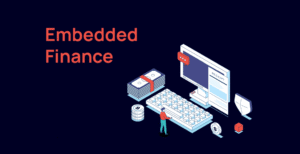Once a vague term in the tech world, blockchain technology is now a disruptive invention that is changing many industries, most notably digital banking. What started with Bitcoin has now grown into a community of decentralized solutions that are revolutionizing the way we handle money. Whether it’s streamlining cross-border transfers or making finance more open, blockchain is pushing the boundaries of digital finance.
It’s no longer just about cryptocurrencies; it’s about lowering costs, speeding up transactions, and building trust without intermediaries securely and openly. This revolution is already underway, affecting everyone from small businesses to large banks. As we move further into the digital age, it’s more important than ever to understand how blockchain fits into the financial sector. Read on to learn how blockchain is changing digital currencies and the future of money.
How to Understand Blockchain Deeply:
When you think about it, blockchain is just a fancy word for a digital archive spread across many computers around the world. Instead of one central authority keeping track of everything, blockchain allows many people to have a copy of their data that is always up to date and cannot be changed. The blockchain network keeps track of transactions in the form of blocks. For example, when someone provides money or information, a block records it. The term “blockchain” comes from the way each new block is linked to the previous one. Once a transaction is added, it cannot be changed or removed, which is what makes it so powerful. This approach creates trust and openness that is hard to match with traditional finance. You no longer need a bank or other third-party service to confirm a transaction; the network does all the work for you.
Cutting Out Financial Intermediaries:
Cutting out the middlemen is one of the key ways blockchain is changing digital banking. In traditional finance, most transactions have to go through multiple “gatekeepers,” such as banks, payment processors, clearing houses, etc. These middlemen cost money and time, slowing down transactions and increasing fees. Blockchain eliminates these middlemen by allowing people to transfer money to each other. You can borrow, lend, or trade directly with others through decentralized finance (DeFi) systems built on blockchain, without the need for banks or brokers. This change not only lowers prices but also gives people more control over their own money. It also makes transactions faster, especially for things like international payments, which used to take days but now take minutes or even seconds.
Greater Security and Openness:
Two key features of blockchain that make it so attractive for digital banking are security and openness. Blockchain is difficult to hack or manipulate because every transaction is encrypted and stored permanently in a decentralized network. In traditional systems, a single hack could compromise the entire database. However, the decentralized nature of blockchain reduces the risk of cyber threats. In addition, anyone can view transactions because many blockchain networks are open. There is less chance of fraud and manipulation because everyone can see what is going on. This level of openness is changing the way accounting and compliance work in the financial sector, making it easier for companies and governments to regulate.
Smart Contracts and Efficient Machines:
Another innovative feature that is revolutionizing the handling of digital money is blockchain smart contracts. The blockchain encodes these transactions, which trigger automatically when certain conditions are met. If you borrow cryptocurrency and agree to pay it back with interest by a certain date, a smart contract can manage the money for you without the need for banks, lawyers, or paperwork. This software reduces errors, saves time, and helps build trust between people who don’t know each other. Smart contracts have a wide range of applications in the financial sector, from processing complex portfolios to paying out insurance claims. We are now accelerating processes that were previously time-consuming and labor-intensive due to paperwork and human review.
What Decentralized Finance (DeFi) Means and How It Works:
A clear way that blockchain is changing digital finance is through DeFi, or decentralized finance. It refers to financial services that are based on blockchain technology and do not rely on a single institution. Users can access services such as savings accounts, loans, trading, and insurance through DeFi applications, which means they don’t have to rely on traditional banks. Millions of people worldwide use these platforms because they generally offer better interest rates and lower fees.
However, DeFi also comes with risks. Since DeFi is still in its infancy and poorly regulated, there are risks such as vulnerabilities, hacks, and scams. Nevertheless, its rapid rise clearly shows that people are yearning for more open, efficient, and convenient financial options. DeFi aims to make banking more open and democratic, empowering people and solving many of the problems caused by centralized systems.
Conclusion:
Blockchain has not only changed the way digital banking works, but it has also completely changed it. Blockchain is a better, more open, and more inclusive way to handle money because it can reduce intermediaries, improve security, enable smart contracts, and support decentralized finance. It has brought about a whole new financial concept that we couldn’t have imagined a decade ago. Of course, this change is not without its challenges, such as security, control, and application. But blockchain still has enormous potential. As the technology improves and becomes more user-friendly, blockchain is likely to become an important part of everyday banking. The change has already begun. Are you ready to join?
FAQs:
1. What makes blockchain more secure than other ways of handling money?
Because blockchain is anonymous and encrypted, it is harder to hack or tamper with. Multiple nodes record transactions, protecting the security and availability of data.
2. Can blockchain replace all banks?
Well, not yet anyway. However, it does offer alternatives to standard banking services, such as lending and payments, especially through DeFi platforms.
3. What role do smart contracts play in the world of digital currencies?
Smart contracts automate financial transactions, eliminating intermediaries and speeding up the transaction process.
4. Is blockchain only for cryptocurrencies?
Blockchain serves a wide range of applications beyond cryptocurrency. It can be used to track supply chains, verify identities, and process digital currencies.
5. Will banking systems that use blockchain be regulated?
Governments are still catching up. Other countries are still determining the best ways to regulate blockchain and DeFi systems, while some have already established their approaches.




